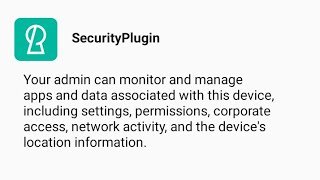As a businessman in Nigeria, it is essential to insure your goods, shops, and business in order to protect yourself from any potential risks or losses. Having the right insurance policy in place can give you peace of mind and financial security. In this blog post, we will explore the steps needed to apply for insurance for your goods, shops, and business in Nigeria as a businessman.
We will look at the types of insurance available, the process of obtaining an insurance policy, and the benefits of having insurance for your business. Read on to learn more about how to get the insurance coverage you need for your business in Nigeria.
Understanding The Types of Insurance for Businesses
Insurance is crucial for businesses of all sizes in Nigeria. It helps to safeguard against the risks of unforeseen circumstances and offers a sense of security for the business owner. In Nigeria, there are different types of insurance that businesses can apply for, depending on their needs. Here are some of the common types of insurance for businesses:
1. Property Insurance:
Property insurance covers damages or loss to physical assets like buildings, equipment, inventory, and other business-related properties. It protects against fire, theft, natural disasters, and other unforeseen events that could result in loss or damage to business property.
2. Liability Insurance:
Liability insurance protects businesses from legal liability for injury, property damage, and other related claims. This type of insurance is essential for businesses that provide services or sell products that could potentially cause harm to their customers.
3. Workers’ Compensation Insurance:
Workers’ compensation insurance is mandatory in Nigeria. It protects employers from financial liability if an employee suffers a work-related injury or illness. It covers medical expenses, lost wages, and rehabilitation costs for the injured worker.
4. Business Interruption Insurance:
Business interruption insurance covers the loss of income that a business incurs due to a disruption in operations. This type of insurance is useful for businesses that heavily rely on their physical locations, such as retail stores and restaurants.
5. Cyber Liability Insurance:
In today’s digital world, businesses are at risk of cyber threats, such as hacking and data breaches. Cyber liability insurance covers losses that result from such events, including theft of customer data, loss of revenue, and liability claims.
Understanding the different types of insurance available to businesses is crucial in determining which policies to apply for. The type of insurance a business chooses will depend on its size, industry, and potential risks. Regardless of the type of insurance, the peace of mind it provides to business owners is priceless.
Identifying the risks associated with your business
Before applying for insurance for your business in Nigeria, it’s important to identify the risks associated with your business. Risks can vary depending on the type of business you own. It could be risks from theft, fire, natural disasters, employee accidents, or damage to your goods.
To identify the risks associated with your business, you can do a risk assessment.
This involves reviewing your business processes, identifying possible threats, and assessing the potential impact they could have on your business.
For example, if you own a retail shop, you need to consider the risks of theft, damage to goods, and injuries to customers.
If you own a manufacturing business, you need to consider the risks of employee accidents, equipment breakdown, and product liability.
Once you’ve identified the risks associated with your business, you can then take steps to minimize or eliminate them.
This could include installing security systems, training employees on safety procedures, and implementing measures to protect your goods from damage or theft.
By identifying the risks associated with your business, you can also determine the types of insurance you need to apply for.
This ensures that you have adequate coverage to protect your business in the event of an unforeseen event.
In the next section, we’ll discuss the process of applying for insurance for your goods, shops, and business in Nigeria as a businessman.
How to Apply for Insurance for Your Goods
As a businessman, you know how important it is to protect your goods from any potential damage or loss. One of the best ways to do this is by applying for insurance coverage for your goods. Here are the steps you need to follow to apply for insurance for your goods:
Identify the goods you want to insure:
The first step in applying for insurance coverage for your goods is to identify the goods you want to insure. This will help you determine the level of coverage you need and the premium you will have to pay.
Contact an insurance company:
Once you have identified the goods you want to insure, you need to contact an insurance company. You can find a list of insurance companies in Nigeria online or through your network.
Provide necessary information:
The insurance company will require some information from you to process your application. This includes the value of the goods, their age, the location where they are stored, and any risks associated with the goods.
Read Also: How to get a Loan from SunTrust Bank Nigeria Limited in 2023
Choose the right insurance coverage:
Once the insurance company has assessed the risks associated with your goods, they will provide you with a quote. This quote will include the level of coverage you need and the premium you have to pay. It is important to choose the right insurance coverage to protect your goods adequately.
Sign the policy:
Once you have chosen the insurance coverage, you need to sign the policy. This policy outlines the terms and conditions of the insurance coverage and your responsibilities as the policyholder.
By following these steps, you can apply for insurance coverage for your goods and protect them from any potential damage or loss.
How To Apply for Insurance for Shops
As a businessman, you understand the importance of protecting your investments and assets. Shops are no exception to this rule, as they are particularly vulnerable to risks such as theft, fire, and natural disasters. This is where insurance comes in – by providing coverage for losses and damages, it helps you safeguard your business and recover from unexpected events.
To apply for insurance for your shops in Nigeria, here are the steps you should follow:
1. Assess your insurance needs
Before applying for insurance, you need to determine the type and amount of coverage you need. This will depend on factors such as the size and location of your shop, the value of your merchandise, and the risks associated with your business. Consulting with an insurance broker or agent can help you make an informed decision.
2. Choose an insurance company
Next, you need to choose an insurance company that offers coverage for shops and businesses. You can research and compare different insurers, or ask for recommendations from other business owners in your industry. Look for a company with a good reputation, a wide range of coverage options, and competitive pricing.
3. Fill out an application form
Once you have chosen an insurer, you will need to fill out an application form. This typically requires you to provide information about your shop, such as its location, size, and inventory. You will also need to disclose any existing risks or issues, such as past claims or previous damages.
4. Provide supporting documents
To complete your application, you may need to provide supporting documents such as photos of your shop, receipts or invoices for your merchandise, and proof of ownership or occupancy. These documents can help your insurer assess the value of your assets and determine the appropriate coverage amount.
5. Wait for approval and policy issuance
After you submit your application, your insurer will review it and assess the risks associated with your shop. They may request additional information or clarification, or they may approve your application and issue a policy. Make sure you carefully review the terms and conditions of the policy, including the coverage limits, deductibles, and exclusions.
Applying for insurance for your shops may seem daunting, but it is an important step in protecting your business and ensuring its longevity. By following these steps and working with a trusted insurer, you can secure the coverage you need and gain peace of mind knowing that your investments are safe and secure.
How to apply for insurance for Businesses
If you’re a businessman in Nigeria, protecting your business should be a top priority. Business insurance is essential to mitigate financial risks that may arise from unfortunate events like theft, fire, or natural disasters. Here’s how to apply for insurance for your business in Nigeria:
- Research: Do your research to understand the different types of insurance available for businesses. You can consult with an insurance broker or visit the website of a reputable insurance company to gather information about policies, terms, and conditions.
- Identify the risks: The next step is to identify the risks associated with your business. It will help you to determine the type and amount of insurance coverage you need. You should consider the location of your business, the nature of your operations, and the value of your assets.
- Choose the right coverage: Based on your business needs and identified risks, choose the insurance coverage that suits you best. Some common types of business insurance in Nigeria include general liability insurance, property insurance, professional liability insurance, and workers’ compensation insurance.
- Get quotes: Request quotes from different insurance companies and compare the cost and coverage. It’s important to read the policy documents thoroughly and understand the exclusions and limitations.
- Apply for insurance: After you’ve chosen the right insurance coverage and insurer, fill out the application form and submit it to the insurance company. Provide accurate information about your business to ensure the policy is valid.
- Pay premiums: The next step is to pay the insurance premiums as per the agreement. The premiums may be paid annually, quarterly, or monthly, depending on the policy terms.
Applying for insurance for your business in Nigeria is a crucial step towards protecting your business from unforeseen circumstances. Take your time to research and understand the available options and choose the best coverage for your business.
Choosing the right insurance coverage for your business
Now that you have identified the risks associated with your business, the next step is to choose the right insurance coverage that will provide adequate protection against those risks. There are different types of insurance coverage available for businesses in Nigeria, and it’s essential to understand them before making a choice.
First, there is property insurance, which provides coverage for damage or loss of your business properties, including buildings, equipment, and inventory. If your business has valuable assets, it’s crucial to consider property insurance.
Another type of insurance is liability insurance, which protects your business from legal claims and lawsuits resulting from injuries, damages, or accidents caused by your business. This coverage is especially crucial for businesses that interact with the public, such as restaurants, construction companies, and retail stores.
There is also business interruption insurance, which provides coverage for losses incurred when your business is forced to close temporarily due to unexpected events such as natural disasters or a pandemic.
This coverage helps to keep your business afloat during the period of interruption.
Additionally, you may need to consider professional liability insurance, which provides coverage for claims resulting from errors or omissions in the delivery of professional services.
Finally, cybersecurity insurance is becoming increasingly crucial as businesses store more data online. This coverage provides protection against cyber threats, including hacking and data breaches.
It’s essential to review your business operations, potential risks, and financial capabilities before deciding on the right insurance coverage for your business. You may also consult an insurance professional who can provide guidance and recommendations based on your specific business needs.
The Process of Applying for Insurance
Now that you have a good understanding of the types of insurance available and have identified the risks associated with your business, it’s time to apply for insurance. The process of applying for insurance in Nigeria is straightforward, but it can vary depending on the insurance company you choose. Here are the general steps you can expect to follow:
Step 1: Research and compare insurance companies
To get the best deal, you should research and compare insurance companies in Nigeria. You can search for reviews and ratings online, or ask for recommendations from other business owners. Take the time to look at each company’s coverage options, pricing, and customer service before making a decision.
Step 2: Request a quote
Once you’ve narrowed down your options, you can request a quote from the insurance company. Provide them with the necessary details about your business, including the type of business, the size, the number of employees, and the risks associated with it.
Step 3: Fill out an application form
If you are happy with the quote, you can fill out an application form. This will include personal details such as your name, address, and contact information, as well as details about your business. The insurance company will use this information to underwrite your policy.
Step 4: Pay the premium
Once your application has been approved, you will be asked to pay the premium. The premium is the amount you will pay to the insurance company for coverage. It can be paid in a lump sum or in installments.
Step 5: Receive your policy documents
Once you have paid the premium, you will receive your policy documents. This will include a policy schedule, which outlines the details of your coverage, and your policy wording, which provides the terms and conditions of your policy. Make sure you read and understand these documents before signing them.
Step 6: Renew your policy
Your insurance policy will typically be valid for one year. Before it expires, you will need to renew it to continue your coverage. You will need to pay another premium and update your application form if there have been any changes to your business.
Overall, the process of applying for insurance for your goods, shops, and business in Nigeria is relatively simple. By understanding the types of insurance available, identifying the risks associated with your business, and choosing the right coverage, you can protect your assets and give yourself peace of mind.
The Benefits of Applying for Insurance
As a businessman, you want to ensure that your business is always protected. Applying for insurance is one way to do just that. Here are some benefits of applying for insurance for your goods, shops, and business:
- Protection against risks: When you apply for insurance, you can protect your business from unforeseen risks and liabilities. If your goods are damaged during transportation or your shop is vandalized, insurance can help cover the costs of repairs or replacements.
- Business continuity: In the event of a loss, insurance can help keep your business running smoothly. With the right insurance coverage, you can avoid losing your entire investment and keep your business up and running.
- Peace of mind: Knowing that you have insurance coverage can give you peace of mind as a businessman. You can focus on running your business without worrying about the unexpected.
- Competitive advantage: Applying for insurance can also give you a competitive advantage. By showing your customers and partners that you are a responsible businessman who cares about the well-being of their investments, you can build trust and loyalty.
- Tax benefits: Applying for insurance can also have tax benefits. Some insurance premiums are tax-deductible, which can help lower your overall tax liability.
FAQS
What type of insurance is needed for businesses?
Businesses may need various types of insurance depending on their nature and activities. Some common types of insurance that businesses may need include general liability insurance, property insurance, workers’ compensation insurance, and professional liability insurance.
What is the other name for insurance business?
The other name for insurance business is the insurance industry.
How to set up an insurance company in Nigeria?
To set up an insurance company in Nigeria, one must meet the requirements set by the National Insurance Commission (NAICOM), which includes obtaining the necessary licenses and approvals, meeting the minimum capital requirements, and fulfilling other regulatory obligations.
What is the meaning of business insurance?
Business insurance refers to a type of insurance coverage that protects businesses from financial losses due to unexpected events such as property damage, liability claims, or business interruptions.
What are the two types of insurance business?
There are two main types of insurance business: life insurance and non-life insurance. Life insurance provides coverage for events related to human life, such as death, disability, or critical illness, while non-life insurance covers events that are not related to human life, such as property damage, liability claims, or business interruptions.
Conclusion
In conclusion, insurance is a critical component of protecting your business and assets. Applying for insurance in Nigeria involves understanding the types of insurance available, identifying your business needs, and selecting a reputable insurance provider.
By following the steps outlined in this guide, business owners can ensure that their goods, shops, and businesses are adequately protected in the event of unforeseen circumstances. It is always better to be safe than sorry, and insurance provides the peace of mind needed to focus on growing and developing a successful business.






